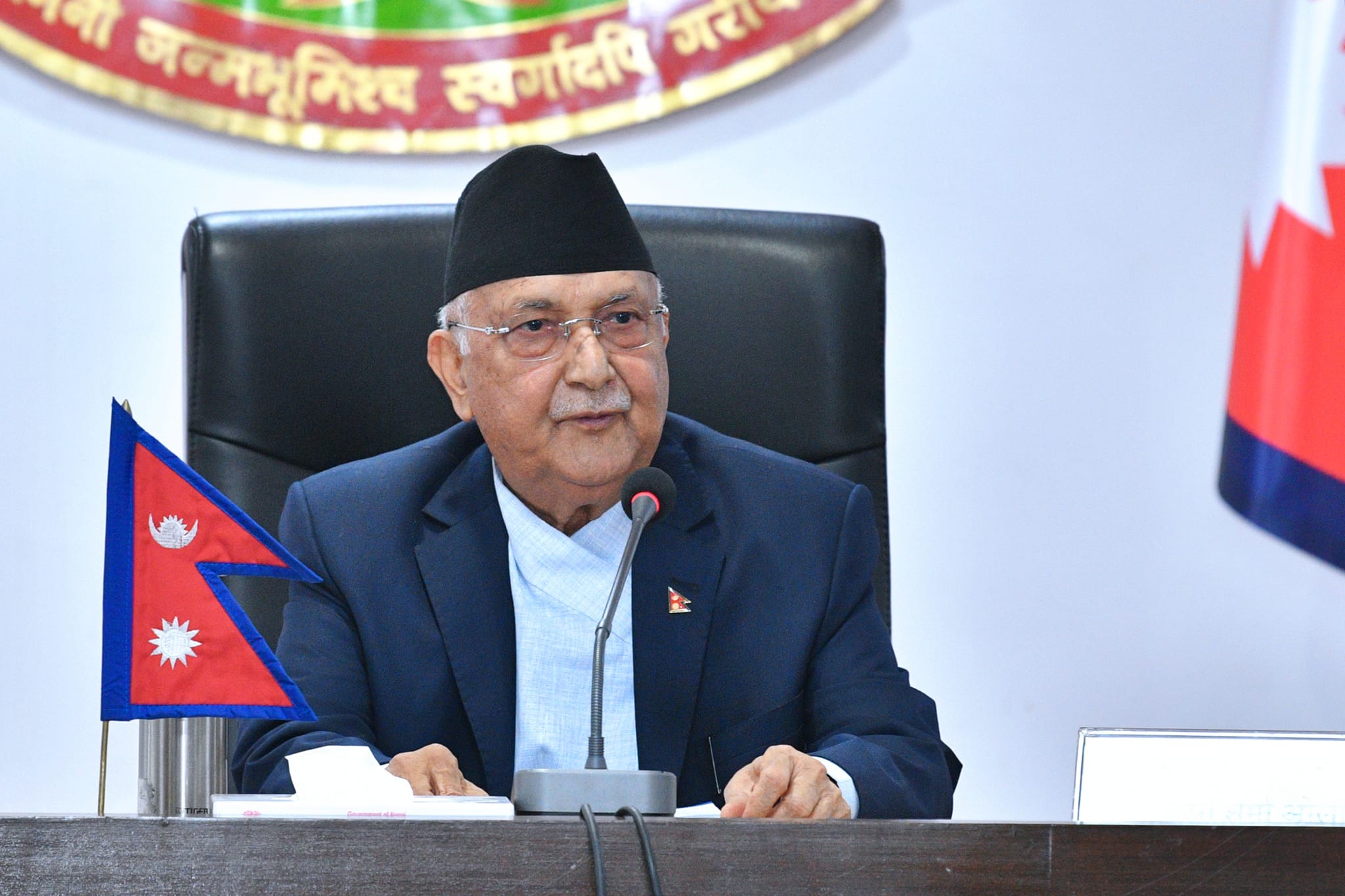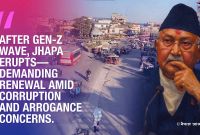Nepal Teetering on the Brink: Will Economic Struggles Spark a Revolution Like in Bangladesh?

Nepal is facing a severe economic crisis that could ignite a revolution similar to the one that has erupted in Bangladesh. With the country's economy in deep recession, widespread corruption, and crippling inflation, discontent is brewing across the nation. The situation in Nepal bears eerie similarities to the factors that led to massive unrest in Bangladesh, where Prime Minister Sheikh Hasina was forced to resign amid violent protests.
Economic Recession and Business Woes
Nepal's economy has been steadily declining, with recession taking a firm hold. The environment for doing business in the country has deteriorated, with high taxation and bureaucratic hurdles making it increasingly difficult for entrepreneurs to thrive. Earlier, the nation grappled with a severe liquidity crisis, which stifled investment and growth. Now, businesses are further burdened by exorbitant taxes, particularly on imports, which have made goods and services in Nepal significantly more expensive.
The high import tax on vehicles, coupled with annual road tax and road permit tax for public vehicles, has made transportation prohibitively expensive. Additionally, fuel prices are soaring due to heavy taxation on petrol and diesel, further driving up the cost of transportation. As a result, the prices of Nepali products such as agricultural goods, manufactured items, and natural resources have skyrocketed, making them less competitive both domestically and internationally.
The Impact of Indian Goods on Nepal’s Economy
While Nepali products become more expensive, Indian trucks and goods continue to flow into the country with relative ease. The importation of Indian products, which are often cheaper, has created an imbalance in the market. This situation is exacerbated by the fact that a significant portion of the Nepalese population relies on remittances sent from abroad. Instead of investing in local goods, these remittances are often spent on more affordable Indian products, further straining Nepal's economy.
The Burden of Federalism
The adoption of a federal system in Nepal has added another layer of complexity to the country's financial woes. The cost of running federal and provincial governments and parliaments is significant, diverting funds away from essential services and infrastructure development. This has increased the pressure on taxpayers and strained government resources, contributing to the overall economic malaise.
Trending Economic and Social Problems
Nepal is also grappling with several other economic and social issues. Unemployment rates are alarmingly high, and there is growing frustration over the lack of job opportunities, particularly for the youth. The healthcare and education systems are underfunded and struggling to meet the needs of the population. Corruption is rampant at all levels of government, eroding public trust and fueling anger among citizens.
The Potential for Revolution
Given the current state of affairs, it is not unthinkable that Nepal could experience a revolution akin to what has transpired in Bangladesh. The public's patience is wearing thin, and there are increasing calls for change. There are several possible avenues through which a revolution could unfold:
-
Protests Against Corruption: Corruption has become a pervasive issue in Nepal, with citizens growing increasingly fed up with the misuse of public funds and the lack of accountability among politicians. Large-scale protests against corruption could gain momentum, with citizens demanding transparency and reform.
-
Campaigns to Withhold Remittances: One potential form of protest could involve a campaign to withhold remittances. As remittances play a crucial role in the Nepalese economy, a significant reduction in these funds could send a powerful message to the government and force them to address the underlying economic issues.
-
Boycotts and Strikes: Nationwide boycotts and strikes could also emerge as a form of protest. By refusing to purchase certain goods, particularly imported products, or by halting work across various sectors, citizens could pressure the government to take action.
-
Social Media Movements: In today's digital age, social media could play a key role in mobilizing citizens and spreading awareness about the country's economic challenges. A viral movement could quickly gain traction, drawing attention to the need for change and encouraging mass participation in protests and other forms of civil disobedience.
A Nation on Edge
As Nepal continues to grapple with its economic and social problems, the possibility of a revolution looms large. The situation in Bangladesh serves as a stark reminder of what can happen when a government's failures reach a tipping point. Whether through protests, boycotts, or other means, the Nepalese people may soon demand the change they so desperately need. The government must act swiftly to address the root causes of discontent before the situation spirals out of control, or Nepal may find itself in the throes of a revolution.




![From Kathmandu to the World: How Excel Students Are Winning Big [Admission Open]](https://nepalaaja.com/img/70194/medium/excel-college-info-eng-nep-2342.jpg)
